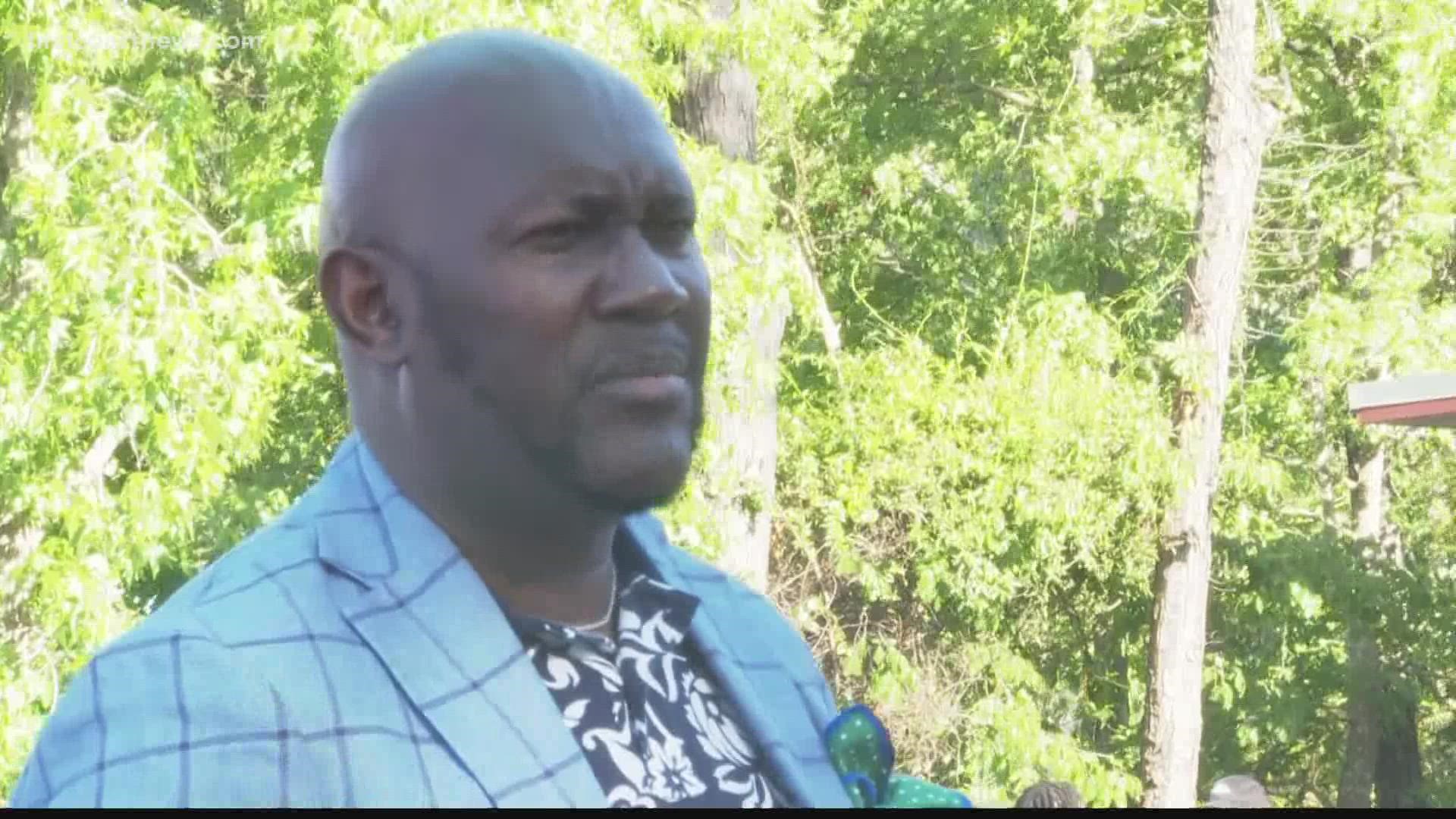WASHINGTON — (Note: The video above is from a previous, related story.)
And Teslas, of course. Lots of Teslas.
Many who participated in what prosecutors are calling the largest fraud in U.S. history — the theft of hundreds of billions of dollars in taxpayer money intended to help those harmed by the coronavirus pandemic — couldn’t resist purchasing luxury automobiles. Also mansions, private jet flights and swanky vacations.
They came into their riches by participating in what experts say is the theft of as much as $80 billion — or about 10 percent — of the $800 billion handed out in a Covid relief plan known as the Paycheck Protection Program, or PPP. That’s on top of the $90 billion to $400 billion believed to have been stolen from the $900 billion Covid unemployment relief program — at least half taken by international fraudsters — as NBC News reported last year. And another $80 billion potentially pilfered from a separate Covid disaster relief program.
The prevalence of Covid relief fraud has been known for some time, but the enormous scope and its disturbing implications are only now becoming clear.
Even if the highest estimates are inflated, the total fraud in all Covid relief funds amounts to a mind-boggling sum of taxpayer money that could rival the $579 billion in federal funds included in President Joe Biden’s massive 10-year infrastructure spending plan, according to prosecutors, government watchdogs and private experts who are trying to plug the leaks.
“Nothing like this has ever happened before,” said Matthew Schneider, a former U.S. attorney from Michigan who is now with Honigman LLP. “It is the biggest fraud in a generation.”
Most of the losses are considered unrecoverable, but there is still a chance to stanch the bleeding, because federal officials say $600 billion is still waiting to go out the door. The Biden administration imposed new verification rules last year that administration officials say appear to have made a difference in curbing fraud. But they acknowledge that programs in 2020 sacrificed security for speed, needlessly.
Justice Department Inspector General Michael Horowitz, who oversees Covid relief spending, told "NBC Nightly News" anchor Lester Holt in an exclusive interview that Covid relief programs were structured in ways that made them ripe for plunder.
“The Small Business Administration, in sending that money out, basically said to people, ‘Apply and sign and tell us that you're really entitled to the money,’” said Horowitz, the chair of the Pandemic Response Accountability Committee. “And, of course, for fraudsters, that's an invitation. … What didn't happen was even minimal checks to make sure that the money was getting to the right people at the right time.”
The criminal methodology varied depending on the program. The epic swindle of Covid unemployment relief has been carried out by individual criminals or organized crime groups using stolen identities to claim jobless benefits from state workforce agencies disbursing federal funds. Each identity could be worth up to $30,000 in benefits, Horowitz said.
The looting of the Paycheck Protection Program worked differently — and it could be far more lucrative. The program authorized banks and other financial institutions to make government-backed loans to businesses, loans that were to be forgiven if the companies spent the money on business expenses. Nearly 10 million such loans have already been forgiven. Many of the loans-turned-grants were for millions of dollars, public records show.
Experts say millions of borrowers inflated their numbers of employees or created companies out of whole cloth. For much of 2020, lenders did little to verify the applications, prosecutors and experts say, in part because Congress required the Small Business Administration, or SBA, which ran the program, to issue explicit guidance that in the interest of getting the money out fast, lenders “will be held harmless for borrowers’ failure to comply with program criteria.” The Government Accountability Office warned of fraud risk, but the program continued under that rule.
“The government spent approximately $800 billion and provided 21 million loans to individuals,” said Haywood Talcove, the CEO of Lexis Nexis, which works with the government to verify identities.
No one is sure exactly how much was stolen. An academic paper released last year estimated at least $76 billion in potential fraud, and the authors said that was conservative.
The SBA’s inspector general has identified $78.1 billion in potentially fraudulent Economic Injury Disaster Loans, another Covid relief program for businesses. The Secret Service has its own estimate: $100 billion.
The basic scheme, Talcove said, was “really simple.” People went on state websites and took the names of existing businesses or registered new, fake ones.
“There's absolutely no security on there. There's no validation of any information,” Talcove said. “And voila, you have company ABC with 40 employees and a payroll of $10 million. And you go and apply for a PPP loan. It was a piece of cake.”
To find more cases, the Pandemic Response Accountability Committee is employing data scientists who use artificial intelligence to plow through 150 million records searching for fraud patterns. In one case it found that a phone number for a gas station in Houston was used on 150 loan applications. It sends such leads to federal agents who follow up on foot.
One of the centers of the fraud is Miami, where Juan Gonzalez is the U.S. attorney in the Southern District of Florida.
Gonzalez said that unlike with unemployment relief, which went to every person who qualified, lenders had to stop making PPP loans when the money ran out, even though demand continued. The fraud didn’t harm just the taxpayers — it hurt people who needed the money.
The public, he said, “should be very angry.”
“This is billions of taxpayer dollars that has been stripped from them,” he said. “And more angry should be the people who did lose their jobs, who worked for businesses that couldn't apply for this money because it was gone. Those are really the ones who should be the angriest of all.”

